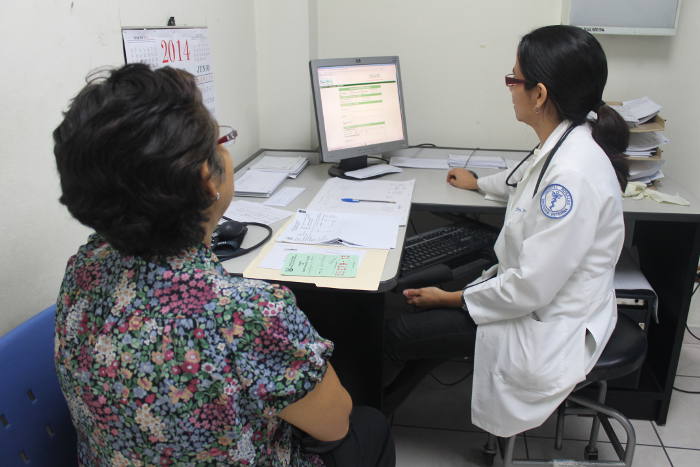-
15 September 2017
Category : Opinion
El Salvador faces a new era in medical record management
Alicia Miranda Duke, head of studies and research at the Salvadoran Institute for Access to Public Information, describes the challenges to protecting patients’ healthcare information. The European Union programme EUROsociAL+ is contributing to this process by promoting the exchange of experiences between Latin American and European countries

In El Salvador, few topics go as unnoticed in public and media agendas as the management of medical records. The irony is that these documents contain sensitive personal information on the health of thousands of people that should be protected with the highest quality standards. This issue is even more important in the public healthcare sector (Encuesta de Hogares de Propósitos Múltiples (Multi-Purpose Household Survey) 2014, DIGESTYC-MINEC).
Between January and March 2017, the Institute for Access to Public Information (IAIP) carried out a series of interviews with key staff in the Ministry of Health (MINSAL) and the Salvadoran Social Security Institute (ISSS) to gather preliminary information on some aspects of document management and personal data protection. The information will help the IAIP, as the governing body in this area, to issue guidelines regarding these matters. A complex reality was revealed by these first interviews.
In terms of standardisation, at least six documents were found that contain different criteria for handling medical records. However, there is no standard management process for the entire public sector. For example, filing documents has become a problem that is literally overwhelming the public health system. Although it is not the same at all care centres, there are warehouses in which these documents are stored with no other criterion than their weight in kilos.
Another finding was that there is little or no knowledge about ARCO rights (Access, Rectification, Cancellation and Opposition to information). On the one hand, there are healthcare operators that do not guarantee full exercise of these rights and, on the other, users who do not demand them. But how to demand a right that is not known by those who must guarantee it?
In the interviews, challenges in managing medical records appeared one after another. Almost all the interviewees agreed on the need to migrate to single electronic formats. Something that, among other benefits, would permit the interoperability of the information. In other words, having access to the medical history of a patient for an operation from wherever he or she might be. But although there are ample arguments in favour, the possibility of migrating collides with another reality: Implementing this would require a significant financial investment. Preliminary data, provided by both institutions, show that this would be an investment of approximately $40 million. But, even in a favourable scenario, standardising management does not end with migrating to an electronic format. In fact, whatever action is taken to implement it, at least two initial challenges must be faced.
Firstly, standardising the documentary management and personal data protection of records that are currently kept on paper. In other words, what to do with what there is. Secondly, a commitment by all those involved in managing these documents, apart from the MINSAL operators.
The IAIP, as the body governing document management and personal data protection, could simply issue guidelines and verify that they are complied with. But is this what interests us? Delimiting our involvement in these two actions would mean denying an extremely complex reality that finds expression in many dimensions. The management of medical records, in this case in the El Salvador public health sector, requires, first of all, an in-depth institutional dialogue that will permit the design of a path toward the necessary changes. To do this, it is also necessary to know how similar processes were developed in other countries in Latin America and the European Union. Otherwise, however well-designed the regulation is technically, it would not be sustainable over time.
Alicia Miranda Duke is the head of studies and research at the Institute for Access to Public Information (IAIP) in El Salvador
The views and opinions expressed in this blog are the sole responsibility of the person who write them.






